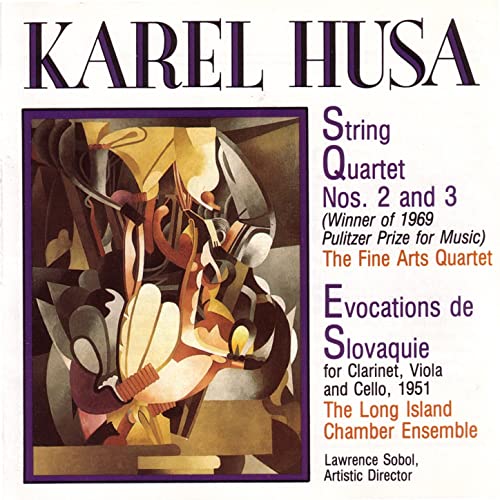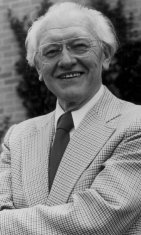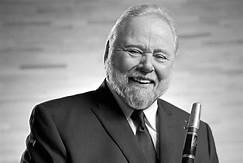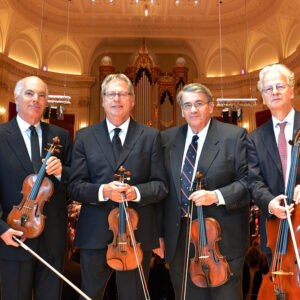
Karel Husa – String Quartets Nos. 2 and 3
PHCD113 | Phoenix CD
| Name | Credit | |
|---|---|---|
 |
Karel Husa | composer |
 |
Lawrence Sobol | clarinet-conductor |
 |
The Fine Arts Quartet | performer |
Evocations de Slovaquie

PHCD113 | Phoenix CD
| Name | Credit | |
|---|---|---|
 |
Karel Husa | composer |
 |
Lawrence Sobol | clarinet-conductor |
 |
The Fine Arts Quartet | performer |
PHCD 113
STRING QUARTETS NO.2 & NO.3/EVOCATIONS OF SLOVAQUIE –
The Fine Arts Quartet
String Quartet No.2
String Quartet No.3
The Long Island Chamber Ensemble
Evocations de Slovaquie
Lawrence Sobol, conductor
Karel Husa (b. 1921 in Czechoslovakia) has taught at Comell since 1954; he composed Evocations in about 1952, the Second Quartet in 1953, and the Third in 1968. In the booklet, the composer writes charming and well-deserved tributes to these players for performances heard before the recordings were made. In turn, the Fine Arts Quartet was so impressed with, and had such success playing his Second Quartet, that they commissioned the Third, which then won a Pulitzer Prize in 1969.
The Second Quartet is in three movements: Adagio-Allegro con Fuoco, Lento assai, Adagio-Allegro con brio. It has considerable rhythmic punch in the outer movements, which assume the fashionably astringent harmonies of its time: Stravinsky colored by Martinu, perhaps; but continued listening reveals no further depth of ideas nor development thereof. It is performed with an assurance born of experience, for the Fine Arts had been playing it for seven years prior to this recording. The Third Quartet has equal flash but more heart: an Allegro moderato builds to a moving coda; the Lento assai, too, has more to say than its earlier fellow; then comes a rather Bartokian scherzo, Allegro Possibile, a series of quiet but lively moments. This quartet is more soloistic than its predecessor; the first three movements feature the cello, viola, and violins respectively. All get together for the Adagio finale, which is the most expressive and satisfying music here. Evocations of Slovakia consists of three pieces: Mountain, Night, and Dance-for a lively, virtuoso clarinet with viola and cello accompaniment; they reach across the Danube to evoke Bartok as well, The Miraculous Mandarin in particular. Despite that connection, this work has its own charming personality, and Lawrence Sobol’s playing is delightful. The people at Phoenix have chosen a label name implying the resurrection of older recordings, and they clearly label their packaging AAD, but they tend to obscure information about the origins of their recordings. By tracking old Schwann catalogs, one discovers that the quartets come from a stereo LP, Everest 3290, released in 1971; the Evocations stem from Grenadilla 1008, which appeared in 1977. This disc is a fine reissue; the quartets are in very clean, somewhat dry sound, and Evocations is bright and clear. The impression remains that Husa has been a skillful follower of the music of his times rather than a genuine innovator.
James North Fanfare Magazine